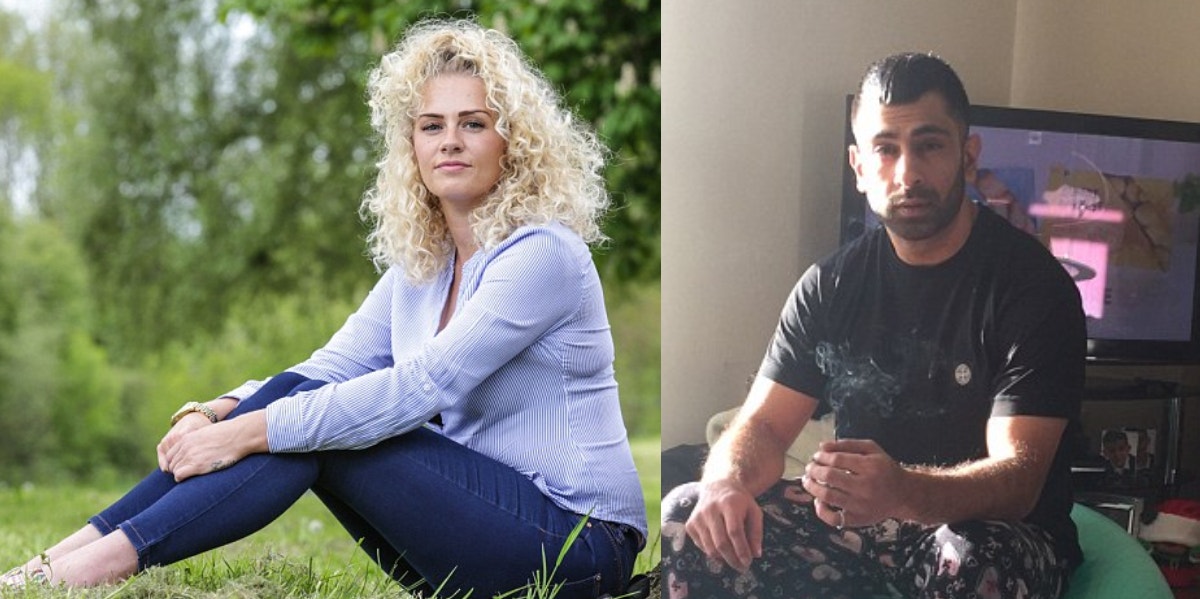Abusive Man Forced Girlfriend To Eat 50 Cans Of Tuna A Week To Get A Body Like Kim Kardashian
And he forced her to burn 500 calories a day.
 Tom McGourty / SWNS.com
Tom McGourty / SWNS.com In 2016, a man in the UK was convicted of both assault and controlling and coercive behavior after abusing his girlfriend into an intense diet and exercise regime against her will.
This was all because the boyfriend, Mohammed Anwaar, wanted his girlfriend, Gemma Doherty, to have a body just like his Instagram favorite models.
Anwaar was convicted after forcing his girlfriend to change her body to look like Kim Kardashian.
Doherty said in court, “He treated me like an animal - almost like a guinea pig in a laboratory. He wanted me to have abs and a huge ass - a big one like Kim Kardashian.”
He made her watch and practice his favorite model Gracyanne Barbosa’s fitness routines with threats of violence. If she ever did not do as told, he would beat her.
He also regularly sent her photos of Gracyanne Barbosa in order to body shame Doherty.
In her victim statement that had been read in court, she explained how controlling Anwaar had been, telling her what to eat and wear, how to exercise, and who she could not see, which included her friends
She recounted that she was forced to eat 50 cans of tuna a week and run on a treadmill until it said that she had burned 500 calories — all because her abusive boyfriend Anwaar had believed that would somehow make her body look more like Gracyanne Barbosa’s.
She tried to explain that this workout regimen would not have that effect, but he insisted.
To the court she recalled, “One time I had stopped because he had fallen asleep. I had got to 425 calories, he woke up and because I had stopped — he made me start again.”
As far as her diet, the only thing she was allowed to eat besides the tuna was beetroot, and when she saw her friends out, they noticed that she was losing weight.
The abuse went beyond emotional to physical when he assaulted her several times over the course of the relationship.
One attack was particularly harmful — he smashed her phone before kicking and slapping her, eventually choking her until she passed out.
But he attacked her many other occasions, once even threatening her with a knife at her throat, saying that he was not scared of a life sentence, and asking Doherty if she wanted him to kill her.
This attack was the most recent, and when the police were finally called on Anwaar.
Speaking on that day in court, Doherty said, "When I told the police that I didn't mind a slap or being roughed about, the officers told me it wasn't normal.”
And Doherty finally left him on the day of that final attack, after nine months of physical and emotional abuse.
This story, no matter how wild, actually sets a legal precedent for convicting abuse.
One of Anwaar’s convictions, one that added an extra 12 months to his 28-month sentence, was coercive control, a relatively new legislation in the UK that recognizes and criminalizes the harmful patterns of domestic abuse.
Having only been introduced a few months earlier, it was one of the first successful convictions of coercive control in the UK, and the very first successful conviction by the South Yorkshire Police Department.
Their lead for domestic abuse, Superintendent Natalie Shaw, was glad to see the new legislation in action to help Doherty, saying, “Domestic abuse is wide ranging and isn't always clear to see upon first examination."
"Just because physical signs of abuse might not be present, it doesn't mean that someone isn't a victim of domestic abuse, and coercive control can be extremely damaging to a person.”
She was relieve when they arrested and jailed him, and described the feeling in court as having “finally been brought back into the real world.”
Unfortunately, there is not an exact equivalent in the U.S., and coercive control and psychological abuse are not criminalized.
However, perhaps more success stories in other countries that prove such legislation useful in domestic abuse trials could create a shift in how we convict abusers.
Amanda Hartmann is a writer and editorial intern at YourTango who writes on news and entertainment.

